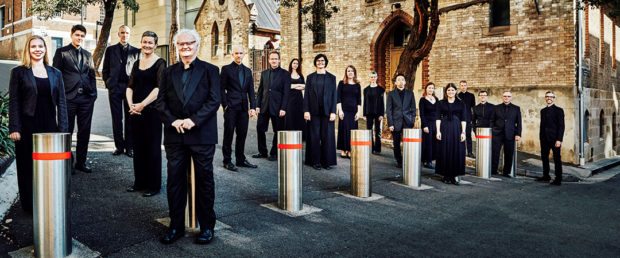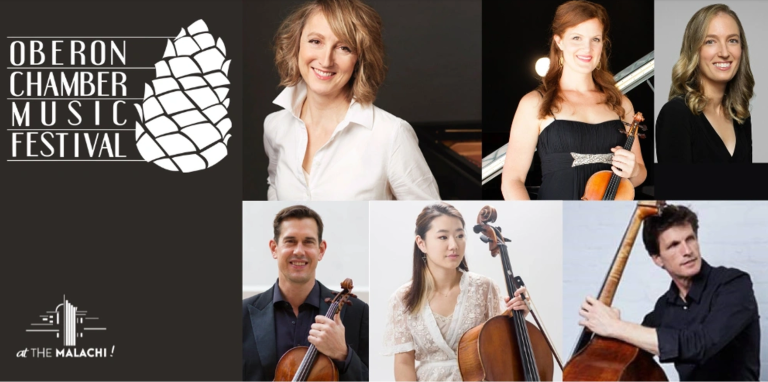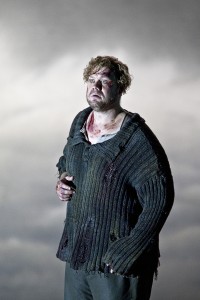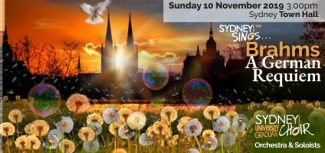Album Review: Lachlan Skipworth Altiora Peto/ ABC Classic
Album Review: Lachlan Skipworth Altiora Peto
ABC Classic
Altiora Peto is a new album release on the ABC Classic label containing four substantial works from Australian composer Lachlan Skipworth. Translated from Latin, the title means ‘I seek higher things’ and is also the title of the opening piece on the album, a three-movement concerto for trumpet and strings. Performed by some of Australia’s most elite musicians, the music comprises two concerti, one for flute and one for trumpet, a quintet for bass recorder and a shortened choral mass, giving a panoramic view of Skipworth’s style of composition and the breadth of his ability, virtuosic to lyrical, in writing for a range of solo instruments, instrumental ensemble and choir, including organ. All these pieces have premiered within the last three years.
The opening piece Altiora Peto is performed by David Elton, Principal Trumpet with the Sydney Symphony Orchestra, and Sydney String Virtuosi, conducted by Umberto Clerici, former Principal Cellist with the Sydney Symphony Orchestra and now Chief Conductor of the Queensland Symphony Orchestra. The trumpet introduces the complex syncopated theme of the Moderato ritmico as the strings throb beneath. Reflecting the title of the piece, the bright trumpet line contains leaping intervals and rising melodic figures with interjections from the string section, relaxing into languid middle section Adagio and returning to the theme in a third section.
The second movement Tranquillo is written for the flugelhorn, whose distinctive sound appears after a plaintive melody from the cello, the remaining strings gently enter later, and the cello and flugelhorn continue their dialogue, in a complementary partnership. The final Allegro is a bustling display of virtuosity as multiple rhythms and modulations, rapid-fire triplets and arpeggios entertain and present challenges ably met by the soloist, ending in a final flourish.
From the celestial to the subterranean, and the low woody sounds of the bass recorder played expertly by Genevieve Lacey with the Australian String Quartet in Cavern – Quintet for Bass Recorder and String Quartet/ recorder and harp.
Written in four movements and played without interruption, the opening Flessibile grows from the shadows, unwinding in a slow burn of sustained breath and long bows on open intervals. Here Skipworth’s Japanese aesthetic comes into play, evoking the strains of the shakuhachi, which he spent three years studying in Japan.
The soundscape perfectly evokes the dark and surreal fear of the unknown, venturing into the subconscious. The music builds to a crescendo leaving the recorder to complete a solitary coda as the second movement Tranquillo moves with greater momentum and solo moments for the strings. The third movement Agitato – Misterioso, modal in its sounds hints at the Orient, the recorder trilling and fluttering over extended techniques in the strings. The final movement, Semplice – Con moto has an etude-like beginning for the recorder, the full ensemble celebrating the conclusion before a diminuendo into infinity. The combination of the string quartet and the softer tones of the bass recorder is a pleasing exploration, more successful in the higher registers than the lower ranges which lose some definition of line.
The Mass for Easter Sunday is a thrilling piece which is the highlight of this compilation. This truncated version of the Latin Mass is performed by St George’s Cathedral Consort and St George’s Cathedral Brass with Stewart Smith at the organ and conducted by Joseph Nolan. Comprising the Gloria, Sanctus and Benedictus and the concluding Agnus Dei, the often hushed and supplicating Kyrie is omitted as the piece cuts straight to the Gloria, giving this celebratory mass an uncommonly and joyfully riotous beginning. The baroque sounds of the brass octet and timpani are hung on a contemporary sound. The choir bursts forth in a fulsome cascade and after a chant-like middle section recapitulates the theme ending with a thrilling Amen.
The Sanctus and Benedictus are reminiscent of modern version of plainchant in the upper voices. The instruments interject followed by some tenor highlights. The Latin text is syllabic with nice melismatic lines on vowels. The Agnus Dei is introduced by the organ. The singers join in the style of a congregational hymn which blossoms into some interesting imitative writing amongst the voice parts interpolated with the brilliance of the brass, broadening to a heart-racing finale.
Skipworth’s four-movement Concerto for Flute and Orchestra is unusually written for a trio of flutes comprising soloist and dedicatee Andrew Nicholson, Principal Flute with the West Australian Symphony Orchestra, in ensemble with a second Principal Flute and Alto Flute. Performed with the West Australian Symphony Orchestra conducted by Asher Fisch this is a live recording from the Perth Concert Hall in June, 2024. The instrumentation includes a piano, reportedly positioned at the centre of the ensemble.
It’s a virtuosic display from Nicholson, lightly tripping above the orchestra. Harp, percussion and piano provide moments of contrasting textures. The second movement Larghetto espressivo is a gently introspective dialogue between flute and violin. The third movement Misterioso – Tranquillo calls on the arpeggiated, bell-like sounds of nature, birds and water. The fourth movement is a bustling whirl of complex rhythms and heavily accented passages contrasting with the lightness, swirling to a climax.
The CD liner notes contain much interpretive description which detracts from the personal response to hearing the music. Conspicuous by their absence are the biographies of the composer and major players (there is no mention of the Sydney String Virtuosi). More facts about the music and the composition of the ensembles would have enhanced the supporting material. Although the words of the mass are well known, including them in the booklet would improve the experience for newcomers to the form.
Too often new works by contemporary composers comprise short forms of music for small forces. On this album, Skipworth proves that he can write engagingly in longer forms and for larger forces on an expansive instrumental palette. Committing this music to disc is an important step in its dissemination, giving it life beyond the concert hall. Skipworth already has many accolades and successes to his name. He will be watched and listened to with great interest.
Shamistha de Soysa for SoundsLikeSydney©
Read more reviews of Lachlan Skipworth’s music here and here.






